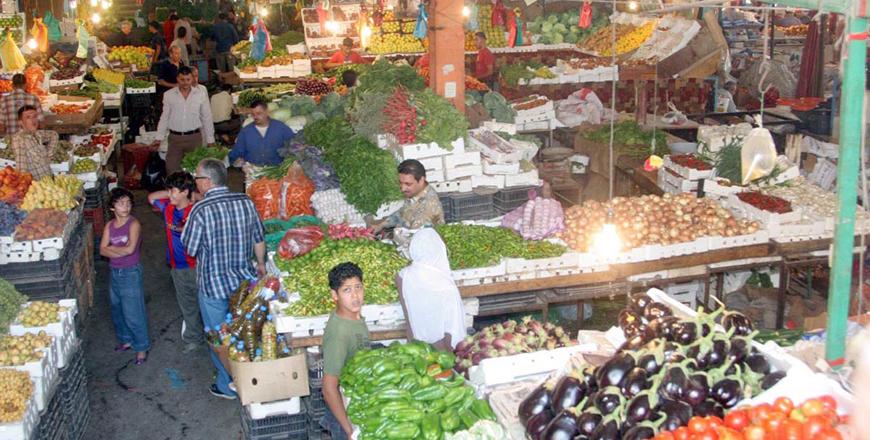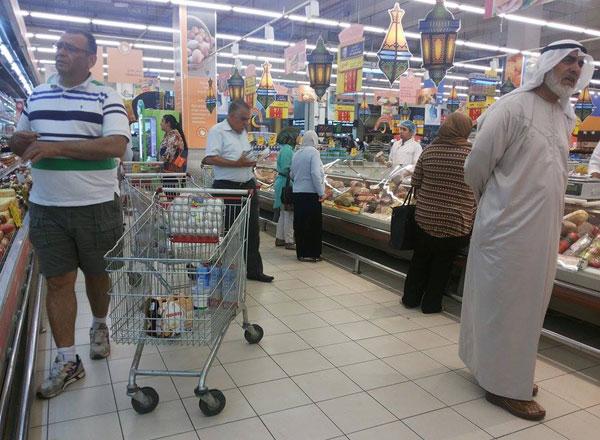You are here
Consumers advised against excessive produce purchases for Ramadan
By Hana Namrouqa - Jun 08,2015 - Last updated at Jun 08,2015

The Ministry of Agriculture said sufficient quantities of produce and meat will be available in the market during Ramadan (JT file photo)
AMMAN — The Ministry of Agriculture on Monday advised consumers against excessive buying of food commodities ahead of the fasting month of Ramadan, stressing that ample produce and meat will be available in the market.
Nimer Haddadin, the ministry’s spokesperson, said the amounts of fruits and vegetables entering the central market meet local demand, highlighting that with the start of Ramadan, more produce is expected to be available as production peaks.
“We urge people to avoid stocking up on food commodities and meat in preparation for Ramadan because this leads to an unjustified hike in prices,” Haddadin told The Jordan Times.
Ramadan, the ninth month of the Islamic lunar calendar, when Muslims abstain from food and drink from dawn to sunset, is scheduled to start on June 17 or 18 depending on the sighting of the crescent moon.
Food and beverage consumption rises considerably during the fasting month due to a change in eating patterns.
Haddadin said the quantities of fruits, vegetables, meat and poultry in the local market will surpass demand to keep prices from rising.
He added that 25,000 dunums of land in Mafraq Governorate, some 80km northeast of the capital, are planted with tomatoes and are expected to provide the local market with 200,000 tonnes during summer.
Moreover, cucumbers are cultivated in 600 greenhouses in Mafraq, with each expected to provide 10 tonnes.
The official said Mafraq provides the country with the majority of its needs of fruit and vegetables during summer, noting that the peak of the production season coincides with the month of Ramadan this year.
“Moreover, the available quantities of meat will exceed the needs of the local market as there are currently 140,000 heads of Romanian and Australian sheep, in addition to Sudanese and local livestock. The local market also has 22,000 tonnes of local poultry, in addition to imported chicken,” Haddadin said.
Related Articles
AMMAN — The Ministry of Agriculture will increase supplies of fruit and vegetables to the central market during the fasting month of Ramadan
AMMAN — The Industry, Trade and Supply Ministry on Saturday held a meeting to discuss measures taken by the concerned government agencies an
AMMAN — Prime Minister Bisher Khasawneh on Wednesday met with representatives from the industrial, commercial and agricultural sectors, as w














